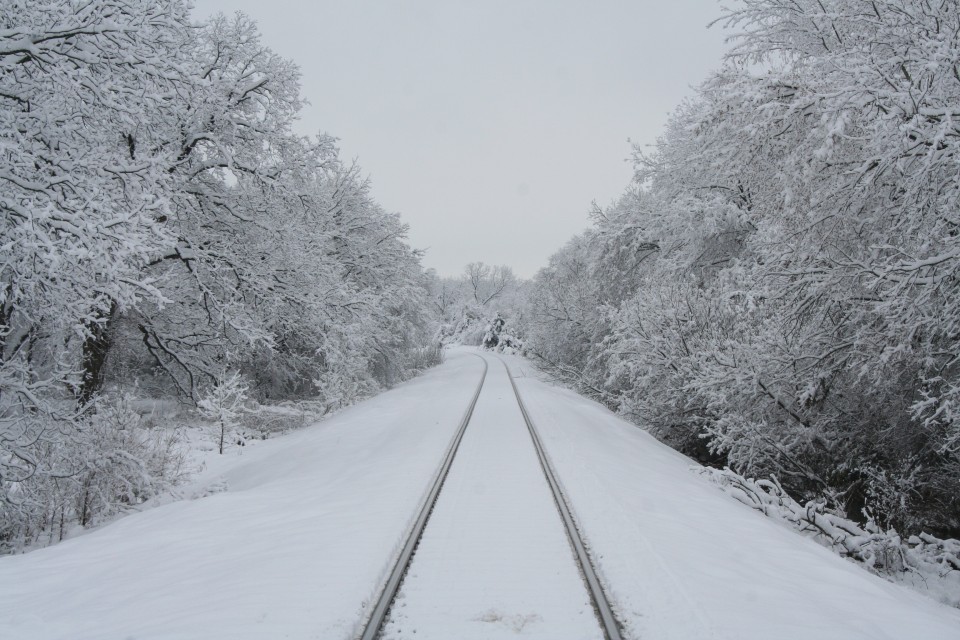This past Thursday, I went to Richmond, Virginia, for a medical school-related event that was supposed to occur over the weekend. Shortly after arriving at my hotel, I discovered the event had been canceled due to the impending blizzard. Not wanting to be stranded in Cavalier Country, I booked a train back home later that evening. But before then, I called a local homeless shelter to offer up my room to anyone who needed it. Before I hung up with the homeless shelter administrator, she asked me a question that took me by surprise: “What made you think of us?”
I responded with some banal answer that I no longer remember, but during the long train ride back, I found myself obsessing over her question. It almost felt as though it would require some external compulsion for me to act like a normal human being and help the homeless.
As I pondered the significance of my day, the train was now deep into rural Virginia. Gazing upon the vast wilderness that sped past my window and feeling the soft rumble of the train tracks, I was reminded of Thoreau’s Walden. He writes: “Did you ever think what those [wooden planks] are that underlie the railroad? Each one is a man, an Irishman, or a Yankee man. The rails are laid on them … and the cars run smoothly over them.”
Everyone knows that the railroads were built by laborers, yet no matter how hard I tried, I could only see the blurred wooden planks beneath me. I wonder how many Irishmen I ran over. I wonder why I didn’t really care. It is the same with the homeless. In our own lives, we know the homeless live among us, yet we blaze over them as we exit Metro stations sipping our coffee. To us, the homeless are just wooden planks that lie beneath the rails; we do not see the immigrant or the son, the man or the woman. They simply do not exist in our preferred realities, and when they don’t exist, we do not feel the need to grant them humanity, we do not feel the need to care.
By this time, the train had emerged from a thicket of trees and an orange sun was setting beyond the bend of a river; this quixotic scenery was abated by the woman sitting next to me, who drew the curtains almost instinctively as her eyes remained intently on her computer screen. For some reason, she reminded me of Plato’s Allegory of the Cave, in which prisoners fixed to look only at a wall of the cave become content with shadows passing by while oblivious to the real world that goes on behind them. When unchained and given the opportunity to face the sun and see the world in the light, they recoil and try to find comfort back in the cave. From where I was sitting, there was no doubt that this woman seemed comfortable. Indeed, when we talk about comfort, we talk about neutralizing the daily acridity of life, nothing more. It seems benign, but this kind of homeostasis can also be dangerous. When we turn on the heat in our homes, we suddenly forget about the blizzard outside, and if in our reality there is no blizzard, then no one can die from the cold. When our stomachs are full of food, suddenly no one is hungry, and when we are safe at home, suddenly no one is homeless. The insidiousness of comfort is that it makes us believe that everything is all right, but “living in an environment where something as massive as the seasons or winter or cold don’t in any way affect us … means that instead of living under the sun and the moon and the sky and the stars, we’re living in a fantasy world of our own making.” Playwright Andre Gregory said that in the film My Dinner with Andre.
My message is not for you to begin helping the homeless. Such requests are rarely moving and always short-lived. My message is the one I wished I could have told that woman on the train: Come out of the cave and live life.
But what does it mean to “live life”? The mere brevity of the phrase reeks of cliche. Author Boris Pasternak describes it elegantly: “Only a life similar to the life of those around us, merging with it without a ripple, is genuine life.” In other words, we stop living in a fantasy when others have shared in our experiences. This is becoming a more difficult task today when our news and advertisements are filtered for our personal tastes, when our thermostats automatically regulate our temperature, when students are given “safe spaces” to hide from the ideas of others. These are all products of comfort-seeking, which divorces us from reality and cultivates a neglect for others in favor of our own self-interest, we recoil back into the cave.
When I finally arrived back at my apartment after a long day of traveling, the wind had picked up a bit. A few minutes later, the homeless shelter administrator called; a family of four had just arrived in my hotel room as the shelter had filled to capacity. I did not know who this family is except that they, like me, were safe from the impending blizzard. And in that mysterious moment of connection, I knew I had lived genuinely that day.
Patrick An, opinion editor, is a senior physiology and neurobiology major. He can be reached at patandbk@gmail.com.



